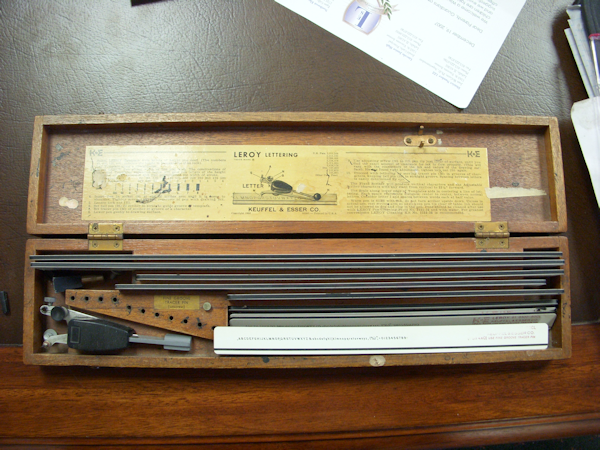Staying competitive in this time of rapidly changing technology is starting to look more challenging every year. Driverless cars, rapid-fire communications, drones, laser scanning, virtual and augmented reality, 3D visualizations – all just a spattering of the onslaught of technological advances our field has seen implemented over the last few years. And if we are to believe Moore's Law, this rapid growth in technology is not stopping anytime soon. Instead it is increasing exponentially and will continue to do so until we get to the point where technology will advance along a vertical projection. Do you have a plan for this future? What are you doing for yourself or your business to prepare? What can you do?
I may not have many answers myself, but I recently heard a presentation from someone who might and thought I would share some of his insights. Meet David Zach, a person who has been officially trained in the future and holds a "master’s degree in Futures Research from the University of Houston." He was one of the keynote speakers at a one-day conference hosted last week by the Southeastern Wisconsin Chapter Association for Talent Development. He started out his talk by asking something I'd never before considered: "who is your role model on how you enter the future?"
For me this seems to be a very unusual question, and I'm very interested in hearing who people might choose so please share your ideas in the comments if you get a chance. For me, you might think I would have picked someone who is the very personification of future readiness. But instead I realized the person who motivates me most to learn, embrace,and implement technological change is someone I know who was close-minded and not at all prepared – ME! Well, me at about age 20 when a colleague interrupted me from hand-drafting a mylar plan sheet with ink and a Leroy set to show me a plan sheet drawn with the use of CAD. Did I say cool – can't wait!? No, I said, that looks horrible – that will never replace plans drawn by hand – there's no comparison. I think that was probably the least intelligent thing I have ever said in my life, and because I was obviously so wrong, the experience taught me a great lesson and motivated me to never be that close-minded again.
But back to Zach's talk…the surprising overall message I got from it was the secret in being prepared for the future is not really found in technology or in the need to understand the specifics of it at all. Instead Zach stressed the importance of connections, learning, and the past. He said, "in a time of drastic change it is the learners who inherit the future." He explained how this is tied to how we research topics. If you need to know something do you Google it, go straight to the answer, take what you find, and go on your way? Or are you the type who researches the topic, reads the sidebars, goes off on tangents, then comes back to the main point before moving on? In the end, Zach said how we research topics becomes critical to our ability to encourage creative thinking and understanding. He said, "without diverse experiences you don't have enough dots to connect." So it is the person who collects as much information he can find that at first glance might not seem directly related who can later make those connections and fill in the gaps to come up with innovative solutions. He compared the process to building a web of information from which you can collect ideas and insight.
Zach also gave us seven specific suggestions we should start doing right away. While some might initially seem bad for our health, I think he might instead be encouraging us to observe behaviors related to these activities and the environments in which these things occur and consider how they might encourage growth and innovation:
1. Start smoking
2. Start drinking
3. Protect and direct attention (play with fads, work with trends, and live by principles)
4. Change and tradition
5. Elegance and Eloquence
6. Concierge mindset
7. Play
The other advice Zach left with us was a list of what we should read/watch to help prepare us for the future. I've left what I could collect from the talk below. (The links are tied to an Amazon Affiliate account for the Public Works Group. So if you buy through a direct link from our blog, you help support the site and have our eternal gratitude!!) And if you ever get a chance to hear Zach speak, I'd definitely take advantage of that opportunity. He was funny, inspirational, insightful, motivational, thought-provoking, and a really nice guy.





